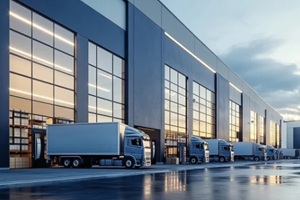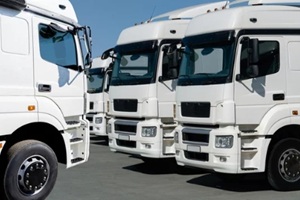
Commercial trucking businesses present substantial risk for liability, regardless of their industry niche. They play an integral role in local and national economies by transporting freight, goods, hazardous materials, and even people, all of which can present serious financial and legal consequences without adequate protection.
When searching for commercial trucking insurance for Illinois businesses, managers should look for policies that meet the coverage needs of their cargo types, operational workflows, and legal risks. With the right insurance coverage, trucking companies can maintain their operations and avoid severe financial and operational penalties due to damage, theft, or litigation.
This guide explores the top risks for trucking businesses to help owners choose the right insurance plans for their business’s specific needs.
Vehicular Accidents
Commercial trucking businesses are responsible for protecting their drivers, vehicles, and reputations from the costly liabilities involved with vehicle collisions. When a trucking business’s drivers are involved in accidents that result in bodily or property damage, they are liable for these damages.
This is why liability insurance is necessary for trucking businesses and is legally mandated by the Federal Motor Carrier Safety Administration (FMCSA). The amount and type of coverage that your business needs will depend on its cargo and vehicle types.
For example, vehicles weighing less than 10,001 pounds and transporting non-hazardous freight are required to have $300,000 of minimum liability coverage, while those transporting hazardous freight such as petroleum products, chemicals, and flammable materials may require up to $5,000,000.
Cargo Theft
While liability insurance covers vehicles, drivers, and other motorists involved in accidents, it does not independently insure the business’s cargo. Cargo that is damaged, stolen, or lost in transit requires separate cargo insurance, which can be purchased as general or specific coverage depending on the business’s needs.
“All risks coverage,” for example, covers the value of the business’s cargo from all types of damage, minus the policy’s exclusions. This is a comprehensive form of cargo insurance, but it cannot cover all circumstances.
Trucking company owners must review the exclusions with their policy provider to select the appropriate “named perils coverage” in addition to their general policy. These policies cover events explicitly excluded from generic coverage, often including natural disasters, fires, and theft.

Timing the insurance coverage is another consideration that trucking business owners face. While some companies opt for one-time shipment coverage, those that regularly transport goods should seek an “open cover” policy, which offers ongoing protection against the specified types of damage.
Non-Dispatch Accidents
While most commercial trucking policies focus on protecting trucks and drivers during normal operations, many accidents on-site at loading bays or depots pose additional risks for trucking businesses. These incidents, including those that damage cargo and vehicles in the loading process, are not usually covered in general liability and cargo insurance policies.
Trucking business owners need bobtail insurance to protect vehicles at risk for theft or damage while not under dispatch. These policies also cover damages incurred outside of business hours, which is significant for business owners who insure a personal vehicle through the company’s policy.
Lawsuits
Lawsuits pose another risk to commercial trucking companies, particularly due to driver fatigue. FMSCA regulations set limits for how long drivers can legally operate their vehicles within a certain timeframe. Examples include the 14-hour limit, which prevents consecutive vehicle operation for longer than 14 hours, and the 60/70-hour limit, which restricts drivers to 60 hours in 7 days or 70 hours in 8 days.
These limits differ for drivers carrying freight vs human passengers. Lawsuits become a liability when drivers or scheduling managers neglect these rules to increase their hours, resulting in driver fatigue and potentially causing accidents for which the trucking business would be liable.
To mitigate this risk, trucking companies need comprehensive insurance coverage beyond the liability limits of conventional liability insurance. Umbrella insurance offers additional coverage for businesses to protect their drivers from costly litigation in the event of a lawsuit.
Employee Accidents

Trucking businesses often employ drivers who require medical benefits, accident protection, and liability coverage. Part of this responsibility entails wage replacement insurance and medical reimbursement for accidents sustained while working.
Workers’ comp cases can become financially and legally costly as trucking businesses attempt to mitigate the damage. Insurance that includes workers’ compensation coverage can mitigate this cost.
Consult With Pro Insurance Group to Mitigate Risks in Your Trucking Business
Pro Insurance Group is committed to helping commercial trucking businesses in Illinois match the policy to their projected risks. In addition to general liability and cargo insurance, our team helps businesses fill other coverage gaps related to lawsuits, workers’ compensation claims, and incidents that occur outside of normal operations.
Contact Pro Insurance Group today to consult with our advisors and match the trucking insurance policy to your business’s needs.
